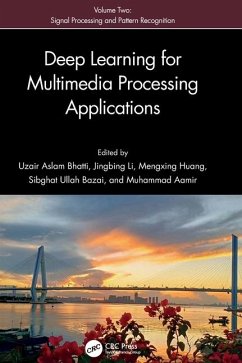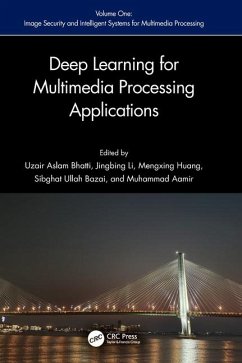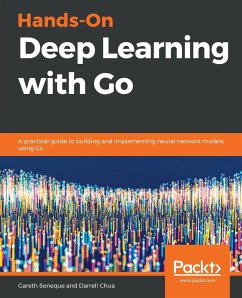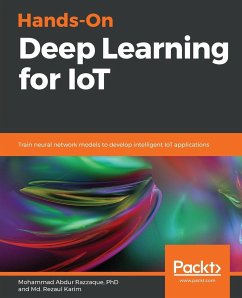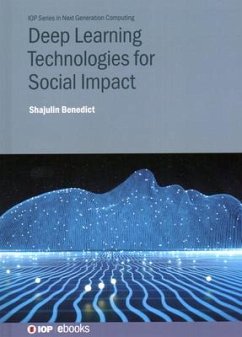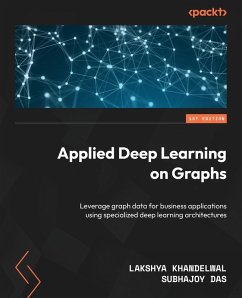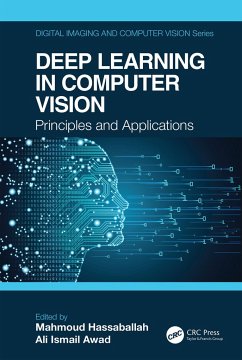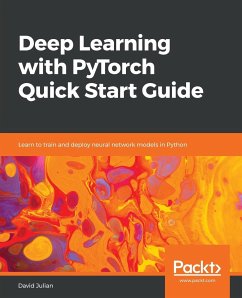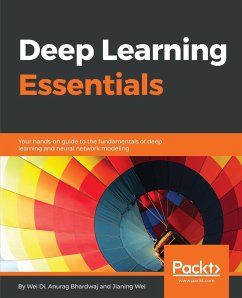Gebundenes Buch
Deep Learning in Diabetes Mellitus Detection and Diagnosis
Versandkostenfrei!
Versandfertig in 1-2 Wochen
Weitere Ausgaben:

PAYBACK Punkte
76 °P sammeln!




This book focuses on deep learning-based approaches in the field of Diabetes Mellitus detection and diagnosis, including preprocessing techniques which are an essential part of this subject. This is the first book of its kind to cover deep learning-based approaches in the specific field of Diabetes Mellitus.
Dr. Jyotismita Chaki is an Associate Professor at the School of Computer Science and Engineering, Vellore Institute of Technology, India. Holding a PhD in Engineering from Jadavpur University, Kolkata, her research focuses on Computer Vision, Image Processing, Pattern Recognition, Medical Imaging, Artificial Intelligence, and Machine Learning. With a prolific publication record, Dr. Chaki has authored over 50 international conference and journal papers and contributed to more than ten books as author or editor. Her editorial roles currently include Editor of Engineering Applications of Artificial Intelligence (Elsevier), Section Editor of PeerJ Computer Science, and Associate Editor for Computer and Electrical Engineering, Array, and Machine Learning with Applications journals (Elsevier). She is a Senior Member of IEEE. Marcin Wozniak received the M.Sc. degree in applied mathematics, the Ph.D. degree in computational intelligence, the D.Sc. degree in computational intelligence and Full Professor honours from the President of Poland. M. Wozniak is currently a Full Professor with the Faculty of Applied Mathematics, Silesian University of Technology. He is a Scientific Supervisor in editions of "The Diamond Grant" and "The Best of the Best" programs for highly talented students from the Polish Ministry of Science and Higher Education. He participated in various scientific projects (as Lead Investigator, Scientific Investigator, Manager, Participant and Advisor) at Polish, Italian and Lithuanian universities and projects with applied results at IT industry both funded from the National Centre for Research and Development and abroad. He was a Visiting Researcher with universities in Italy, Sweden, and Germany. He has authored/coauthored over 300 research papers in international conferences and journals. His current research interests include neural networks with their applications together with various aspects of fuzzy logic and control, applied computational intelligence accelerated by evolutionary computation and federated learning models. In 2017 Prof Marcin Wozniak was awarded by the Polish Ministry of Science and Higher Education with a scholarship for an outstanding young scientist. In years 2021 and 2024 he received two awards from the Polish Ministry of Science and Higher Education for research achievements. In 2020, 2021, 2022 and 2023 Prof Marcin Wozniak was presented among "TOP 2% Scientists in the World" by Stanford University for his career achievements. Prof Marcin Wozniak is also presented among the Best Computer Science Scientists in Poland by Research.com. Marcin Wozniak is the Editorial Board member or an Editor for Biomedical Signal Processing and Control, Sensors, Machine Learning with Applications, Pattern Analysis and Applications. He also guest edit special issues ie. IEEE Journal Biomedical and Health Informatics, IEEE ACCESS, Measurement, Sustainable Energy Technologies and Assessments, Frontiers in Human Neuroscience, PeerJ CS, International Journal of Distributed Sensor Networks, Computational Intelligence and Neuroscience, Journal of Universal Computer Science, etc. Prof. Marcin Wozniak is a Session Chair at various international conferences and symposiums, including IEEE Symposium Series on Computational Intelligence, IEEE Congress on Evolutionary Computation, International Joint Conference on Neural Networks, etc.
Produktdetails
- Verlag: CRC Press
- Seitenzahl: 200
- Erscheinungstermin: 30. Januar 2025
- Englisch
- Abmessung: 240mm x 161mm x 15mm
- Gewicht: 470g
- ISBN-13: 9781032647005
- ISBN-10: 1032647000
- Artikelnr.: 71299526
Herstellerkennzeichnung
Libri GmbH
Europaallee 1
36244 Bad Hersfeld
gpsr@libri.de
Für dieses Produkt wurde noch keine Bewertung abgegeben. Wir würden uns sehr freuen, wenn du die erste Bewertung schreibst!
Eine Bewertung schreiben
Eine Bewertung schreiben
Andere Kunden interessierten sich für





